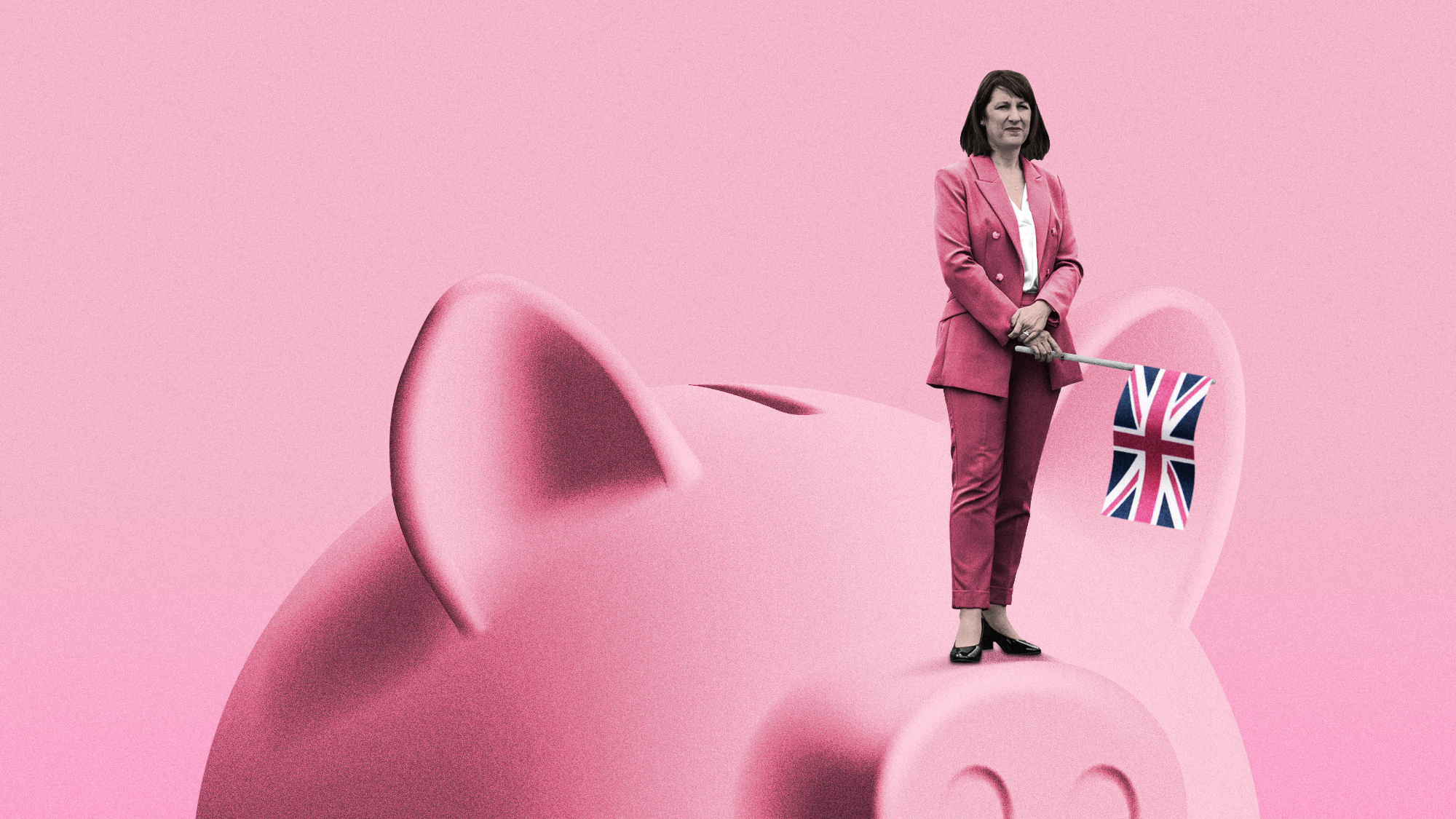Is the UK worth investing in?
Labour looks to woo businesses and reverse years of underinvestment in search for holy grail of growth

A free daily email with the biggest news stories of the day – and the best features from TheWeek.com
You are now subscribed
Your newsletter sign-up was successful
Keir Starmer has promised to "rip out the bureaucracy that blocks investment" as he welcomed hundreds of global business leaders to a major summit in London.
With senior executives in attendance representing an estimated total of £40 trillion in assets, the prime minister wants to "woo foreign capital as part of the government's push to get the economy growing again", said The Guardian.
While the government expects billions of pounds' worth of commitments to come out of the summit, "investment levels remain the Achilles heel of the UK economy", said David Bharier, from the British Chambers of Commerce.
The Week
Escape your echo chamber. Get the facts behind the news, plus analysis from multiple perspectives.

Sign up for The Week's Free Newsletters
From our morning news briefing to a weekly Good News Newsletter, get the best of The Week delivered directly to your inbox.
From our morning news briefing to a weekly Good News Newsletter, get the best of The Week delivered directly to your inbox.
What did the commentators say?
The UK’s investment performance remains worse than every other G7 country, a report by the Institute for Public Policy Research (IPPR) found just weeks before Labour came to power. In addition, countries such as Mexico, Slovenia, Latvia and Hungary were attracting higher levels of private sector capital investment as a percentage of GDP.
The UK has had the lowest level of investment in the G7 for 24 of the last 30 years but the different trajectories of France and the UK show our poor performance was "far from inevitable", said the IPPR. While the two countries had the same level of business investment in 2005, the most recent data shows France has increased its level by 3.4 percentage points since then, while the UK’s now stands almost 1 percentage point lower.
In a boost for Labour ahead of the London summit, five of the world's biggest banks joined private equity firms, insurers and tech giants to declare that Britain is ready for investment and has a "very real opportunity" to grow. J.P. Morgan, Goldman Sachs, Bank of America, Citi and UBS were among the signatories of a letter to The Times saying it is "time to invest in Britain".
They said increased political stability since Labour's general election win made the UK a more attractive place for investment. "Britain's educational establishments, legal system, financial services sector and language form the bedrock of a strong investment proposition."
A free daily email with the biggest news stories of the day – and the best features from TheWeek.com
It comes as the latest Lloyds Bank Business Barometer revealed UK business confidence hit a nine-year high in 2024.
What next?
Starmer is "determined to prevent overzealous regulators from stifling a pro-growth agenda that he claims is essential to grow the UK’s economy", said the Financial Times.
As well as cutting red tape, Starmer's deregulation drive will see the Competition and Markets Authority ordered to "prioritise growth, investment and innovation in its work", said The Independent. He will also launch a review of the remit of other major regulators to ensure they are focused on growth.
While this week's summit could attract up to £50 billion of investment in infrastructure, life sciences and AI, Labour's first Budget, on 30 October, is being viewed as the true test of its pro-business credentials.
British firms are "bracing for fiscal shake-ups", City A.M. said, after the government suggested it may increase some taxes to plug what it claims is a £22 billion "black hole" in the public finances left by the Conservatives. Chancellor Rachel Reeves is understood to be considering a range of tax hikes, including to capital gains and employer National Insurance and pension contributions.
Taxation has now become businesses' "primary concern", said Reuters. John Caudwell, the billionaire founder of Phones4U who switched from backing the Tories to Labour at the election, thinks some investors could quit the UK after the Budget. This is a view echoed by Charlie Nunn, chief executive of Lloyds Bank, who warned against any tax increase that could stymie growth. “Anything that helps people continue to invest and take appropriate risk is really important; anything that does the opposite would be a handbrake."
While introducing the biggest programme of workers' rights for decades, establishing GB Energy and renationalising the railways, the government is "not looking to pick fights with 'fat cats'", acknowledging that private investment is "essential to its growth agenda", said George Eaton in The New Statesman.
It highlights the "tricky tightrope that Labour is walking", said Politico's London Playbook, "trying to play to the corporate and more comradely galleries".
-
 The ‘ravenous’ demand for Cornish minerals
The ‘ravenous’ demand for Cornish mineralsUnder the Radar Growing need for critical minerals to power tech has intensified ‘appetite’ for lithium, which could be a ‘huge boon’ for local economy
-
 Why are election experts taking Trump’s midterm threats seriously?
Why are election experts taking Trump’s midterm threats seriously?IN THE SPOTLIGHT As the president muses about polling place deployments and a centralized electoral system aimed at one-party control, lawmakers are taking this administration at its word
-
 ‘Restaurateurs have become millionaires’
‘Restaurateurs have become millionaires’Instant Opinion Opinion, comment and editorials of the day
-
 Companies are increasingly AI washing
Companies are increasingly AI washingThe explainer Imaginary technology is taking jobs
-
 Why is pizza in decline?
Why is pizza in decline?In the Spotlight The humble pie is getting humbler
-
 How prediction markets have spread to politics
How prediction markets have spread to politicsThe explainer Everything’s a gamble
-
 SiriusXM hopes a new Howard Stern deal can turn its fortunes around
SiriusXM hopes a new Howard Stern deal can turn its fortunes aroundThe Explainer The company has been steadily losing subscribers
-
 How will China’s $1 trillion trade surplus change the world economy?
How will China’s $1 trillion trade surplus change the world economy?Today’s Big Question Europe may impose its own tariffs
-
 Is the UK headed for recession?
Is the UK headed for recession?Today’s Big Question Sluggish growth and rising unemployment are ringing alarm bells for economists
-
 Should Labour break manifesto pledge and raise taxes?
Should Labour break manifesto pledge and raise taxes?Today's Big Question There are ‘powerful’ fiscal arguments for an income tax rise but it could mean ‘game over’ for the government
-
 Autumn Budget: will Rachel Reeves raid the rich?
Autumn Budget: will Rachel Reeves raid the rich?Talking Point To fill Britain’s financial black hole, the Chancellor will have to consider everything – except an income tax rise